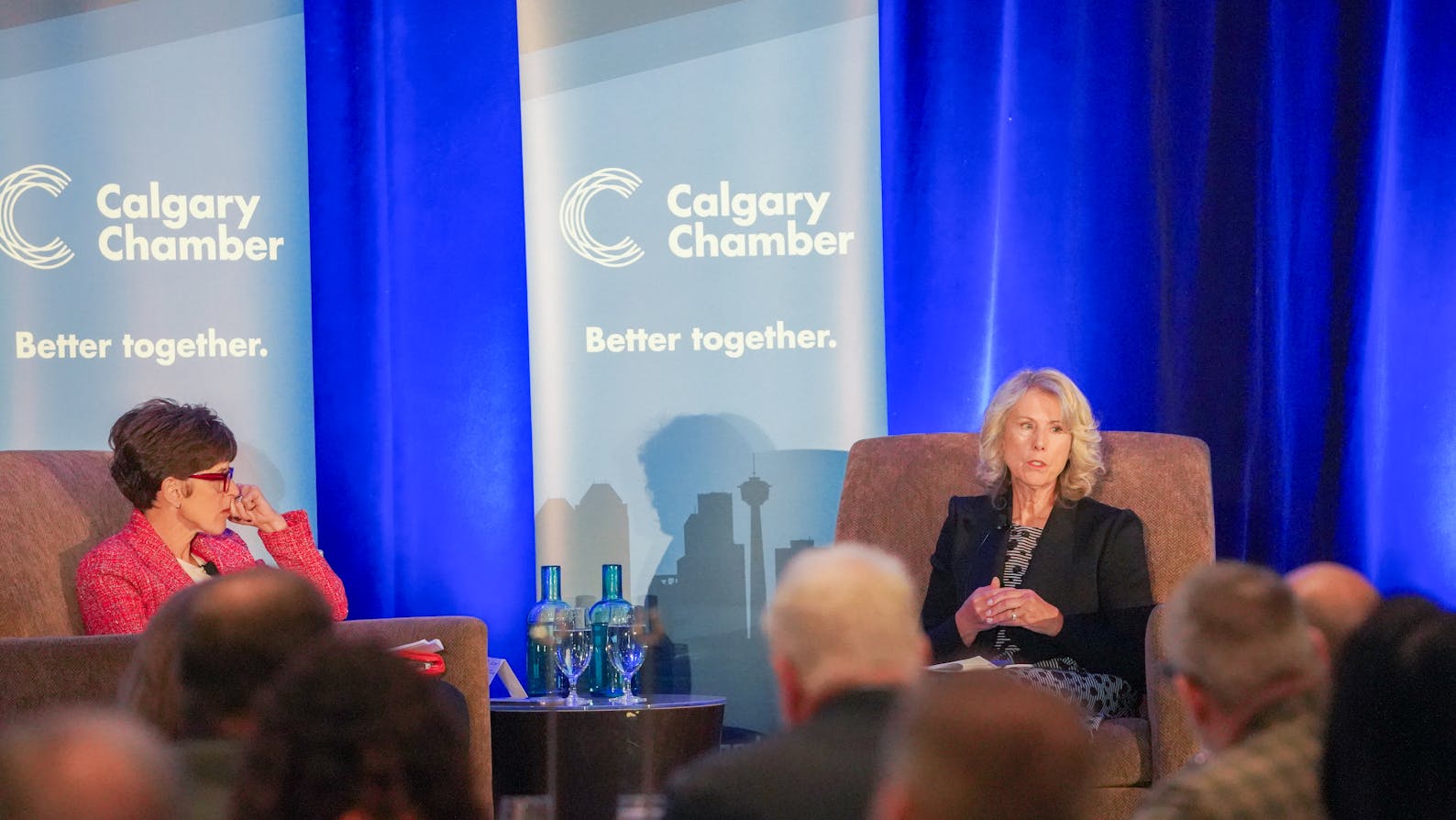On May 2, the Calgary Chamber hosted Dawn Farrell, President & CEO, Trans Mountain, for a keynote and fireside chat to discuss the completion of the Trans Mountain Expansion (TMX) project, and the economic, environmental and social impact of this major infrastructure investment.
Ms. Farrell began her remarks by outlining the serious financial investment – roughly $34 billion – required to get this monumental project completed. She discussed the various obstacles impacting the timeline and price tag associated with the expansion, including the challenging terrain and inclement weather, and how the project team worked creatively to overcome these challenges.
Despite headwinds, Ms. Farrell highlighted the significant return on investment that Canadian’s can expect from the federal governments expenditure, stating an already increased national GDP, an anticipated $7 billion in annual taxes and royalties from increased profits across industries by narrowing the oil price differential – not to mention the $56 billion in economic benefit already created throughout construction. Ms. Farrell firmly stated that this project has more than paid for itself in economic benefit and will continue to pay dividends to Canadians through direct and in-direct economic impact for decades to come.
The keynote brought forward key themes of importance to the Albertan and Canadian economies, including:
• The positive impact of large scale nation-building infrastructure projects, and the importance of the federal government’s contribution to de-risk investment.
• The stringent environmental and regulatory obligations the project adhered to, and the significant collaboration with Indigenous communities that led to the project’s success.
• The progress that this project contributes in terms of economic reconciliation, and the precedent it sets for future Indigenous engagement and involvement in large scale infrastructure projects.
The fireside chat with Calgary Chamber President & CEO, Deborah Yedlin, covered lessons learned, the environmental and social impacts, TMX as a nation building project and the positive economic benefit associated with its completion.
The discussion also touched on:
• The concept of a “both and” project, where both economic impact and environmental goals can be supported at the same time, and how this informed construction decisions throughout the entirety of the project.
• The complex policy environment in Canada, the global need for secure and low carbon energy and the future of TMX.
• Lessons learned for government and regulators on building massive interprovincial projects and the need for continued collaboration to ensure TMX is not the last major energy project to reach completion in Canada.
To close, Ms. Farrell reiterated that the large investment made by the federal government to acquire the project will certainly pay dividends and continue to have a positive impact on Canadians for generations to come.
Thank you to our sponsors, including our Thanking sponsor, Canadian Association of Petroleum Producers and our Supporting sponsors, Banister Pipelines, Energy Connections Canada, Kiewit, Ledcor, Macro Pipelines, Midwest Pipelines, Osler, Hoskin & Harcourt LLP, Progress Land Services and Surerus Murphy, without whom this event would not have been possible.





